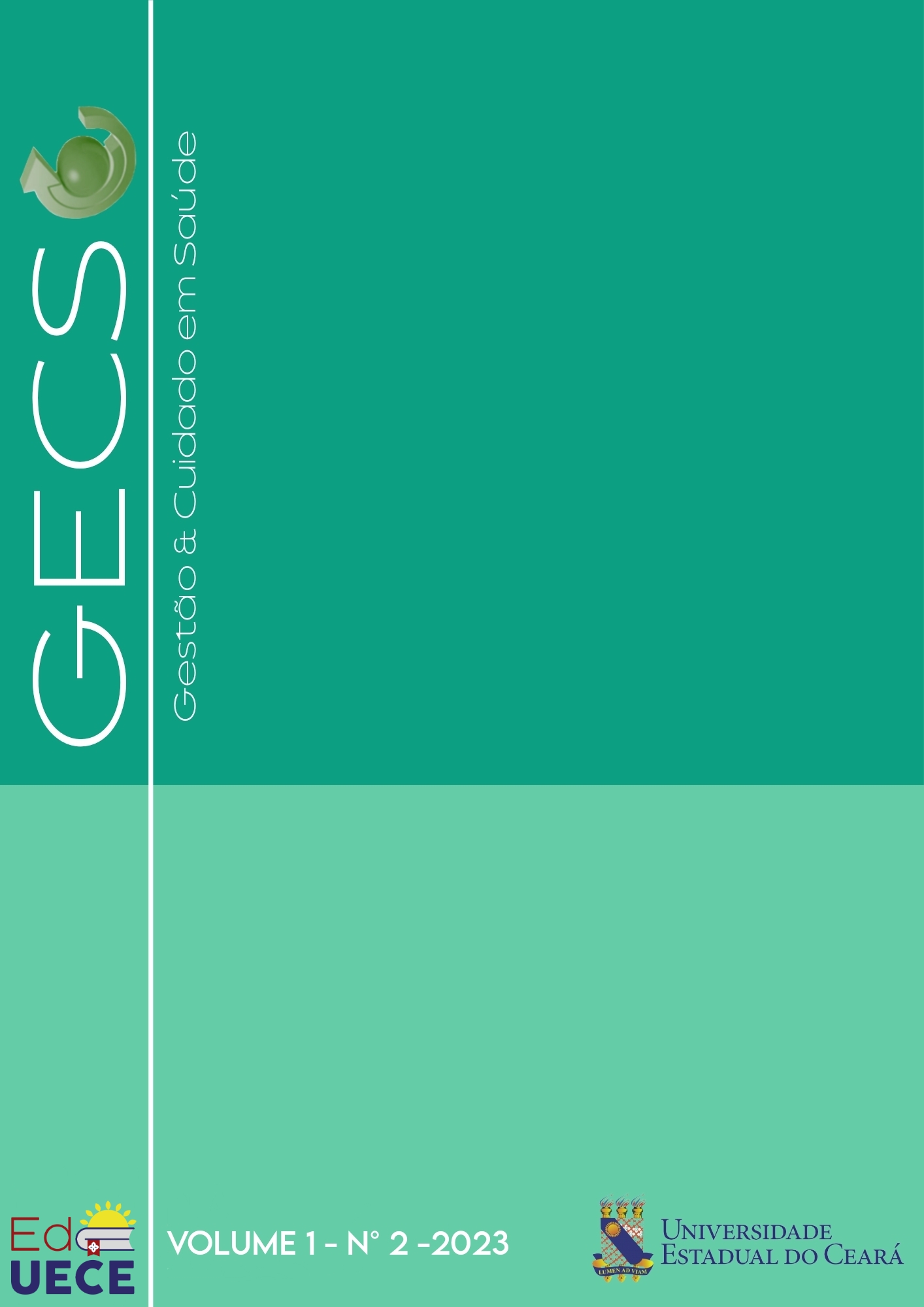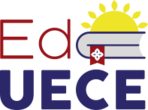Educational technologies in addressing teenage pregnancy
DOI:
https://doi.org/10.70368/gecs.v1i2.12985Keywords:
educational technologies, pregnancy in adolescence, health educationAbstract
The study aims to identify in the literature the educational technologies used to address the issue of teenage pregnancy in the school environment. The integrative literature review method was adopted. The selection of articles took place in the Cochrane Library databases; Medical Literature Analysis and Retrievel System Online (MEDLINE) and the Virtual Health Library (VHL) and Scientific Electronic Library Online (SciELO) databases using previously established criteria. 7 articles published from 2015 to 2020 were included and it was found that the main educational technologies are social media and educational games. Information and Communication Technologies have proven to be more efficient in reaching young people, due to the participation and understanding of this public, however, it is necessary to consider the premises of health literacy, so that educational technologies on the subject of teenage pregnancy can lead to the empowerment of this population. population.
References
ANTUNES, L. G. R; CARDOSO, A.P.C; VIEIRA JUNIOR, N; CORREA, H.L. Desvelando as vozes dos discentes da geração z sobre boa aula. Brazilian Journal of Education, Technology and Society, [S. l.], v.16, n.4, p.824-837, Out. 2023. DOI: Disponível em: https://doi.org/10.14571/brajets.v16.n4.824-837.
BRINDIS, C. D.; DECKER, M. J.; GUTMANN-GONZALEZ, A.; BERGLAS, N. F. Perspectives on adolescent pregnancy prevention strategies in the United States: looking back, looking forward. Adolescent health, medicine and therapeutics, [S. l.], v. 11, p. 135-145, Out. 2020. Disponível em: https://doi.org/10.2147/AHMT.S219949.
BRINKMAN, S. A. et al. Efficacy of infant simulator programmes to prevent teenage pregnancy: a school-based cluster randomised controlled trial in Western Australia. The Lancet, [S. l.], v. 388, n. 10057, p. 2264-2271, 2016. Disponível em: https://doi.org/10.1016/S0140-6736(16)30384-1.
COSTA, A. B. S. et al. O uso das tecnologias educativas na educação em saúde sexual com adolescentes. Research, Society and Development, v. 12, n. 2, p. e29812240300-e29812240300, 2023. Disponível em: http://dx.doi.org/10.33448/rsd-v12i2.40300.
DA SILVA, I. O. S. et al. Intercorrências obstétricas na adolescência e a mortalidade materna no Brasil: uma revisão sistemática / Obstetric complications during adolescence and maternal mortality in Brazil: a systematic review. Brazilian Journal of Health Review, [S. l.], v. 4, n. 2, p. 6720–6734, 2021. Disponível em: https://ojs.brazilianjournals.com.br/ojs/index.php/BJHR/article/view/27297.
DE ALMEIDA, S. K. R. et al. As práticas educativas seus respectivos impactos na prevenção da gravidez na adolescência / Práticas educativas e seus respectivos impactos na prevenção da gravidez na adolescência. Revista Brasileira de Revisão de Saúde, [S. l.], v. 3, pág. 9787–9800, 2021. Disponível em: https://ojs.brazilianjournals.com.br/ojs/index.php/BJHR/article/view/29270.
DESMET, A. et al. A systematic review and meta-analysis of interventions for sexual health promotion involving serious digital games. Games for health journal, v. 4, n. 2, p. 78-90, 2015. Disponível em: https://doi.org/10.1089/g4h.2014.011.
DE GALIZA, D.D.F. et al. VALIDAÇÃO DE CARTILHA EDUCATIVA PARA BOAS PRÁTICAS ALIMENTARES NA GESTAÇÃO. Essentia -Revista de Cultura, Ciência e Tecnologia da UVA, Sobral, v. 20, n. 2, p. 76-83. 2019. Disponível em: https://doi.org/10.36977/ercct.v20i2.282.
DIFULVIO, G.T. et al. Digital storytelling as a narrative health promotion process: Evaluation of a pilot study. International quarterly of community health education, v. 36, n.3, p. 157-164, 2016. Disponível em: https://doi.org/10.1177/0272684X16647359.
IBGE. Pesquisa nacional de saúde do escolar: 2019. Rio de Janeiro: IBGE, 2021. 162 p. Disponível em: https://biblioteca.ibge.gov.br/visualizacao/livros/liv101852.pdf.
FALKEMBACH, G.A.M.; GELLER, M.; SILVEIRA, S.R. Desenvolvimento de Jogos Educativos Digitais utilizando a Ferramenta de Autoria Multimídia: um estudo de caso com o ToolBook Instructor. Renote, v. 4, n. 1, 2006. Disponível em: https://doi.org/10.22456/1679-1916.13874.
FERNANDES, C. J. S. C. A gamificação como estratégia para iniciativas de educação em saúde sexual e reprodutiva voltadas para a juventude: apresentação de um jogo virtual sobre Infecções Sexualmente Transmissíveis (IST). Revista de Ensino de Biologia da SBEnBio, [S. l.], v. 14, n. 1, p. 251–271, 2021. Disponível em: http://doi.org/10.46667/renbio.v14i1.477.
Fundo das Nações Unidas para Infância (UNICEF). Gravidez na Adolescência no Brasil: Vozes de Meninas e de Especialistas. Brasília: INDICA, 2017. 108 p. Disponível em: https://www.unicef.org/brazil/media/1896/file/Gravidez_na_Adolescencia_no_Brasil.pdf.
HUNGARO, T. A. et al. Jogos sérios e gamificação: um novo modelo para educação em saúde. Revista Eletrônica Acervo Saúde, v. 13, n. 9, p. e8540, 23 set. 2021. Disponível em: https://doi.org/10.25248/reas.e8540.2021.
LIMA FILHO, C. A. et al. Educação em saúde: uma revisão sobre prevenção da gravidez na adolescência. Journal of Education Science and Health, [S. l.], v. 3, n. 1, p. 1–11, 2023. Disponível em: https://doi.org/10.52832/jesh.v3i1.171.
MARQUES, H.R. et al. Inovação no ensino: uma revisão sistemática das metodologias ativas de ensino-aprendizagem. Avaliação, Campinas; Sorocaba, SP, v. 26, n. 03, p. 718-741, nov. 2021. Disponível em: https://doi.org/10.1590/S1414-40772021000300005.
MENDES, K. D. S., SILVEIRA, R. C. C. P., GALVÃO, C. M. Revisão integrativa: método de pesquisa para a incorporação de evidências na saúde e na enfermagem. Texto & Contexto Enfermagem, Florianópolis, SC, v. 17, n.4, p. 758-764, out. 2008. Disponível em: https://www.scielo.br/j/tce/a/XzFkq6tjWs4wHNqNjKJLkXQ.
MENDES, K. D. S., SILVEIRA, R. C. C. P., GALVÃO, C. M. Uso de gerenciador de referências bibliográficas na seleção dos estudos primários em revisão integrativa. Texto & Contexto Enfermagem, Florianópolis, SC, v. 28, p.e20170204, 2019. Disponível em: https://www.scielo.br/j/tce/a/HZD4WwnbqL8t7YZpdWSjypj/?lang=en.
NKHOMA, D. E. et al. Girls’ empowerment and adolescent pregnancy: A systematic review. International journal of environmental research and public health, v. 17, n. 5, p. 1664, 2020. Disponível em: https://www.ncbi.nlm.nih.gov/pmc/articles/PMC7084341/.
PAGE, M. J. et aL. The PRISMA 2020 statement: an updated guideline for reporting systematic reviews. BMJ, [S. l.], v.372, n.71. Disponível em: https://www.bmj.com/content/372/bmj.n71.
PAULA, A. V.; LOPES, V. A. de S.; DA ROCHA, W. S. A INFLUÊNCIA DAS REDES SOCIAIS NA AUTOIMAGEM FEMININA: Desvendando padrões de beleza e seu papel no desenvolvimento do transtorno dismórfico corporal. Revista Contemporânea, [S. l.], v. 3, n. 11, p. 20706–20726, 2023. Disponível em: https://ojs.revistacontemporanea.com/ojs/index.php/home/article/view/1945.
PRAXEDES, M. L. S; QUEIROZ, M.V.O; VIEIRA, R.P. Efetividade de jogo educativo sobre contracepção com adolescentes escolares: estudo quase-experimental. Online Brazil. Jounal nursing. [S.l] v.18, n.4. 2019. Disponível em: https://pesquisa.bvsalud.org/portal/resource/pt/biblio-1123602.
PEREIRA, L. M. et al. Tecnologias educacionais para promoção da saúde de adolescentes. Revista de enfermagem da UFPE., Recife, v.15, n.1, p. e247457.2021 Disponível em: https://doi.org/10.5205/1981-8963.2021.247457.
PINTO, A. C. S. et al. Uso de tecnologias da informação e comunicação na educação em saúde de adolescentes: revisão integrativa. Revista de enfermagem da UFPE., Recife, 11(2):634-44, fev., 2017.Disponível em: https://periodicos.ufpe.br/revistas/index.php/revistaenfermagem/article/view/11983.
PINHEIRO Y. T; PEREIRA N. H; FREITAS G. D. de M. Fatores associados à gravidez em adolescentes de um município do nordeste do Brasil. Cadernos de saúde coletiva. [S.l] v.27, n4, out. 2019. Disponível em: https://doi.org/10.1590/1414-462X201900040364.
RAMOS, A.C; GONÇALVES JUNIOR, O. Abandono e evasão escolar sob a ótica dos sujeitos envolvidos. Educação e Pesquisa, [S. l.], v. 50, p. e268037, 2024. Disponível em: https://www.scielo.br/j/ep/a/KtBRcFWvWKBt63LSQCVzdwh/.
REYNOLDS, C.; SUTHERLAND, M.A.; PALACIOS, I. Exploring the use of technology for sexual health risk-reduction among ecuadorean adolescents. Annals of global health, v. 85, n. 1, 2019. Disponível em: https://pubmed.ncbi.nlm.nih.gov/30993955/.
RIBAS, K.H; ARAÚJO, A.H.I.M de. A importância da Literacia em Saúde nos Cuidados Básicos: revisão integrativa da literatura. Pesquisa, Sociedade e Desenvolvimento, [S. l.], v. 16, pág. e493101624063, 2021. Disponível em: https://rsdjournal.org/index.php/rsd/article/view/24063.
RODRIGUES, Ricardo Batista. Novas Tecnologias da Informação e da Comunicação. Recife: IFPE, 2016.
SOUSA, L. M. M. et al. Revisões da literatura científica: tipos, métodos e aplicações em enfermagem. Revista Portuguesa de Enfermagem de Reabilitação, Porto, Portugal, v. 1, n. 1, p. 45–54, 2018. Disponível em: https://rper.aper.pt/index.php/rper/article/view/20.
Downloads
Published
How to Cite
License
Copyright (c) 2024 Anazira Lima de Sales Feitosa, Juliana Sales Feitosa, Maria Eliana Peixoto Bessa

This work is licensed under a Creative Commons Attribution 4.0 International License.













